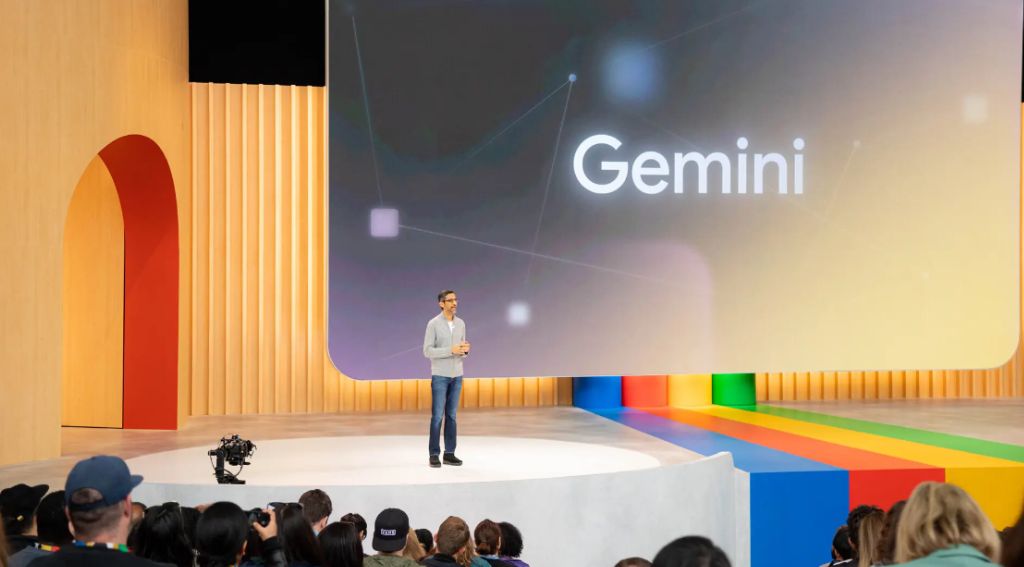Google’s Gemini will revolutionize generative AI with mobile breakthrough

Google has introduced “Gemini,” its latest generative artificial intelligence (AI) system designed to run directly on mobile phones. This innovation marks a significant stride in Google’s quest to compete with industry players such as OpenAI, the creator of ChatGPT.
Game-Changer for generative AI on mobile devices
Described as Google’s “largest, most capable and most general” AI system, Gemini has the ability to analyse information from images and audio, incorporating sophisticated reasoning and planning capabilities. Scheduled to power Google’s Bard chatbot starting this Wednesday, Gemini is poised for a broader integration into the search engine from the coming year.
A component of Gemini, labelled “nano,” has been specifically crafted for mobile devices and will be seamlessly integrated into Google’s latest Pixel phones. This model, optimized for mobile use, ensures that Android developers can effortlessly build AI apps and features that function offline or safeguard personal information directly on the device.
Addressing economic challenges
Gemini’s mobile-centric design tackles a significant economic challenge in the AI landscape. By running generative AI on the computing power available on mobile handsets instead of through cloud servers, operated by major tech conglomerates, Google aims to drastically reduce the operational costs associated with such systems. This transition also offers a heightened layer of assurance for users concerned about keeping private data confined to their devices.
“I believe the transition we are seeing right now with AI will be the most profound in our lifetimes, far bigger than the shift to mobile or to the web before it,” stated Sundar Pichai, Google and Alphabet’s CEO, in a recent blog post. “This new era of models represents one of the biggest science and engineering efforts we’ve undertaken as a company.”
Gemini triumphs over rivals
Gemini has already proven its mettle by scoring over 90 percent on an “industry standard” benchmark assessing large language models, the foundational technology behind generative AI products. Notably, Gemini stands out as the first AI model to outperform human experts on certain tasks, surpassing OpenAI’s GPT3.5 model in multiple tests, including mathematical reasoning, scientific data analysis, and advanced coding.
Integration with Bard
Gemini will seamlessly integrate into Bard, Google’s AI-powered chatbot, starting this week in the English language, available in more than 170 territories, excluding Europe and the UK due to regulatory considerations. Sissie Hsiao, VP at Google and GM of Bard, emphasized ongoing collaboration with local regulators to address hurdles, ensuring a responsible and compliant rollout.
The integration promises to enhance Bard’s capabilities in understanding and summarizing content, reasoning, brainstorming, writing, and planning. Examples of Gemini’s applications include scanning and marking errors on handwritten mathematical worksheets and facilitating collaborative video creation, as demonstrated by YouTuber Mark Rober.
Versions of Gemini will be gradually released to developers and enterprise customers throughout December, with broader access anticipated in the coming year. As Google propels AI into the mobile realm with Gemini, it signifies a pivotal moment in the evolution of generative AI, heralding a new era of efficiency, accessibility, and privacy.
Related topics:






